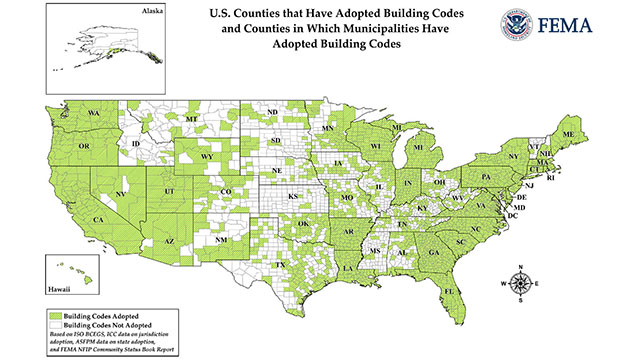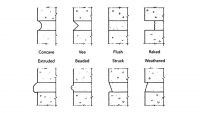Report highlights the importance of building codes
Strong codes increase the resilience of our communities
The U.S. Department of Homeland Security (DHS) recently released a report entitled “Including Building Codes in the National Flood Insurance Program”, which discusses the feasibility of including model building codes in the National Flood Insurance Program (NFIP). The study will be used by Congress to consider whether to make adoption and enforcement of model building codes mandatory for communities participating in the NFIP program.
“The Insurance Institute for Business & Home Safety (IBHS) supports the adoption of strong, uniform building codes throughout the country to increase the resilience of our communities and the safety of our homes and businesses,” said Julie Rochman, IBHS president and CEO.
The DHS report includes a number of very strong statements about the importance and cost-effectiveness of building codes including the major finding that “the overall impacts of including building codes as part of NFIP would be positive in helping to reduce physical losses and other hazard losses, which in turn positively affect land use planning and the regulatory climate.”
“Another key aspect of this report is that it highlights the importance of enforcing codes as a complement to technical requirements in order to make sure the expected building safety standards are actually incorporated into homes and commercial structures,” Rochman explained.
“We know that communities with strong, well-enforced building codes fare better than those with weak or no codes when disasters strike,” Rochman said. “Property damage is reduced, home and business owners are able to recover faster, the local economy and tax base are maintained, and the amount of government disaster aid is decreased in communities that have adopted and enforce strong codes before catastrophes strike.”
“Building community resilience is the most effective way to make our nation stronger in the face of continuing natural disasters,” noted Rochman. “DHS is a leader in this area and has just announced a new program called Resilience STARTM, which will assign a range of stars to homes that meet specific resilience standards, much the same way ENERGY STAR assigns energy efficiency ratings to appliances.”
Together with IBHS and other private sector partners, DHS will work to engage homeowners, builders and contractors in communities at high risk for certain natural disasters to take proactive steps to enhance the resilience of the homes in their communities. DHS is currently accepting applications from builders, contractors, and homeowners to participate in the Resilience STAR Home Pilot Project at: www.disastersafety.org/resilience-star. The deadline for submitting applications is January 17, 2014.
About the Author
Stacy Williams, APR, is the Public Affairs Manager at Insurance Institute for Business & Home Safety.



















